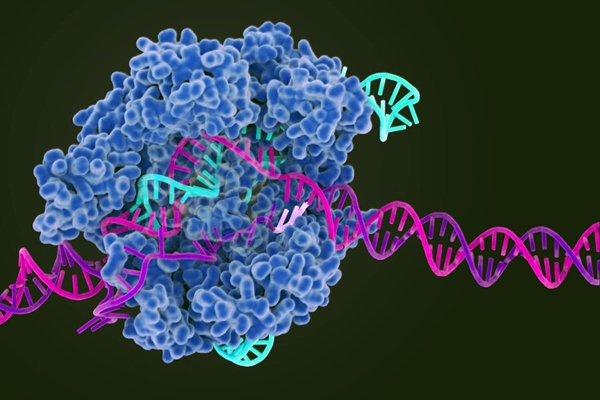24 Oct. 2018. The global chemical company BASF is licensing a more precise form of genome editing from the Broad Institute, a genetics research center affiliated with Harvard University and MIT. Financial aspects of the agreement between BASF and Broad Institute in Cambridge, Massachusetts were not disclosed.
The deal gives BASF, based in Germany, a non-exclusive license to Broad’s advances in the genome editing technology known as Crispr, short for clustered regularly interspaced short palindromic repeats. Crispr is based on bacterial defense mechanisms that use RNA to identify and monitor precise locations in DNA. The actual editing of genomes with Crispr employs enzymes that cleave DNA strands at the desired points, with Crispr-associated protein 9, or Cas9, being the enzyme used for the longest period.
Recent studies of Crispr reveal however, some drawbacks with Cas9 as an editing enzyme. As reported by Science & Enterprise in July, a review of Crispr-Cas9 studies by the Wellcome Sanger Institute shows Crispr edits using Cas9 enzymes with single-guided RNA result in unwanted insertions and deletions in the edited genomes. In some cases, the unwanted genomic changes from Cas9 occur over a wide range of genes, and in other cases some distance from the original edits, making them difficult to detect.
Since the early research on Crispr in 2012, later work in the lab of Broad institute geneticist Feng Zhang identified another editing enzyme called Cpf1 that the researchers say is simpler and more precise than Cas9. In the deal with Broad Institute, BASF is licensing Crispr with Cpf1 as the editing enzyme for agricultural and industrial microbiological applications. The company previously licensed Crispr with Cas9 as the editing enzyme from Broad Institute.
Also as reported by Science & Enterprise in July 2017, Broad Institute is making many of its Crispr patents available through the licensing organization MPEG LA, which pools patents for related technologies into a one-stop service that the group says makes it easier for businesses wanting to license those technologies. Instead of negotiating with individual license holders, companies can get access to patented technologies at one time and a single location, with simplified procedures.
Crispr faced a long, difficult legal battle that now appears to be settled. A protracted dispute over Crispr-Cas9 patents between Broad Institute and University of California in Berkeley was decided in Broad’s favor in September by the U.S. Court of Appeals for the Federal Circuit, the court established to hear intellectual property appeals. While UC-Berkeley also holds patents for its Crispr-Cas9 discoveries, Broad’s intellectual property on Cpf1 enzymes for Crispr editing are so far unchallenged.
More from Science & Enterprise:
- Allergan Licensing Crispr for Inherited Eye Disease
- Crispr Deployed to Boost Plant Disease Resistance
- UC-Berkeley Gains U.S. Crispr-Cas9 Patent
- Crispr Deployed to Correct Inherited Vision Disorder
- Crispr Enhanced to Find, Edit Tiny Mutations
* * *


 RSS - Posts
RSS - Posts
[…] BASF Licensing Precise Crispr Editing from Broad Institute […]